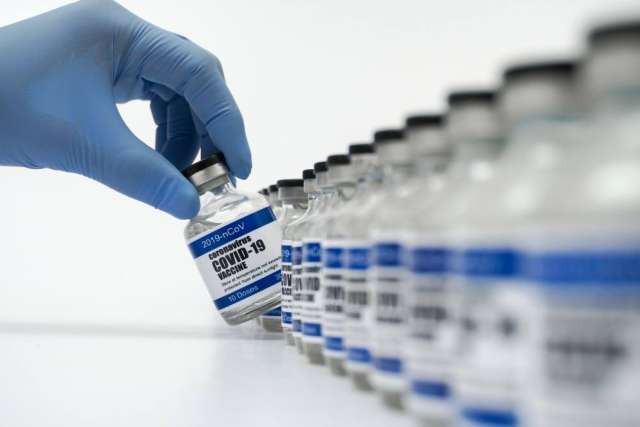Hello, dear readers, and welcome to a bonus letters column devoted to your ongoing questions about the coronavirus and its vaccines and boosters. You’ve brought up important and complex topics, and we’ll do our best to provide clear and helpful information.
-- Several readers have requested help in discussing the coronavirus vaccine with hesitant friends and relatives. The focus is often the makeup of the vaccine itself. “One of my sister's main objections to the COVID-19 vaccine is that, unlike the flu vaccine, it does not use a portion of the virus itself to trigger an immune response,” she wrote. “My sister believes the vaccine is altering your body's genetic makeup to fight off the virus. Is that correct?” The answer is no, none of the coronavirus vaccines affect or alter the body’s genetic makeup.
Just as with the flu vaccine, the coronavirus vaccines are teaching the immune system to recognize a specific characteristic of the virus. The difference lies in the teaching tool that the two vaccines use. The flu vaccine uses a deactivated or weakened version of the virus to instruct the immune system. The coronavirus vaccine instructs the immune system with a fragment of genetic code, known as mRNA. That bit of code does not -- and CANNOT -- affect or become part of the recipient’s genetic code. In fact, our cells dismantle and get rid of the mRNA in a vaccine within a few days.
-- We have heard from several vaccinated readers who, after getting a breakthrough COVID-19 infection, have questions about the booster shot. “I received the vaccination from Pfizer (two shots) in December 2020 and January 2021,” a reader from California wrote. “In September 2021, I contracted COVID-19. Do I still need to get the booster?” The recommendation from the CDC is that, yes, vaccinated individuals with a breakthrough infection should receive a booster. They should wait before getting the shot until their symptoms have fully resolved and they are beyond their isolation window. The reason for recommending the booster after a bout of COVID-19 is that the degree of post-infection immunity remains unclear. Emerging evidence shows that getting a booster after you recover from a COVID-19 infection provides added protection.

-- We have also been receiving requests for guidance in choosing a booster. “I got the J&J vaccine and am now eligible for a booster,” a reader from Florida wrote. “The CDC says I may receive a booster of any of the three vaccines, but they make no recommendations as to which one.” Based on the most recent data, the Pfizer and Moderna vaccine booster shots appear to provide more robust protection than the Johnson & Johnson booster. There is also strong evidence that, for those who received the two-shot series of Pfizer or Moderna vaccines, a mix-and-match approach to boosters improves immune response.
What’s most important is to get fully vaccinated, and to be vigilant about following up with a booster when you become eligible. The evidence is clear -- the coronavirus vaccines are effective at preventing severe illness and death.
We welcome your coronavirus and vaccine-related questions and hope you will continue to reach out.
To learn more about the vaccines and for the latest information visit UCLA Health's COVID-19 Vaccine Info Hub.
(Send your questions to [email protected], or write: Ask the Doctors, c/o UCLA Health Sciences Media Relations, 10960 Wilshire Blvd., Suite 1955, Los Angeles, CA, 90024. Owing to the volume of mail, personal replies cannot be provided.)





